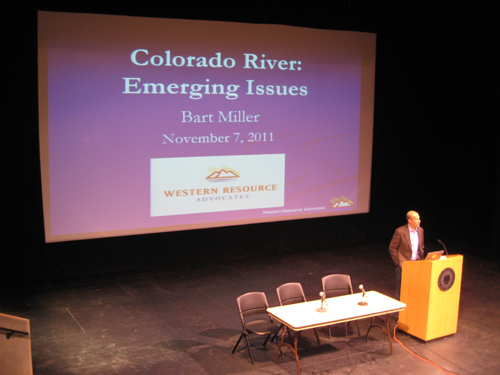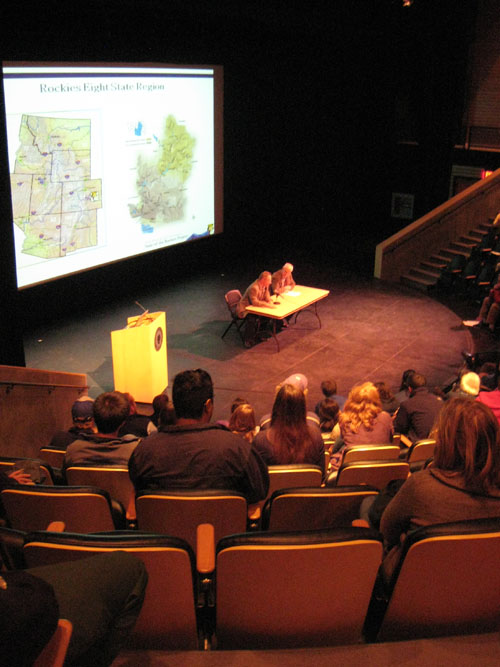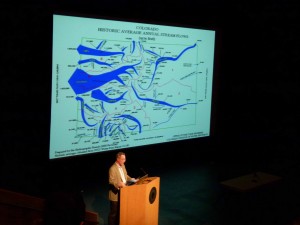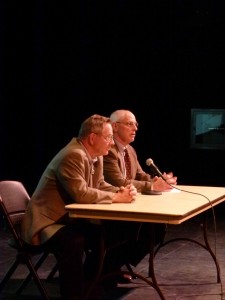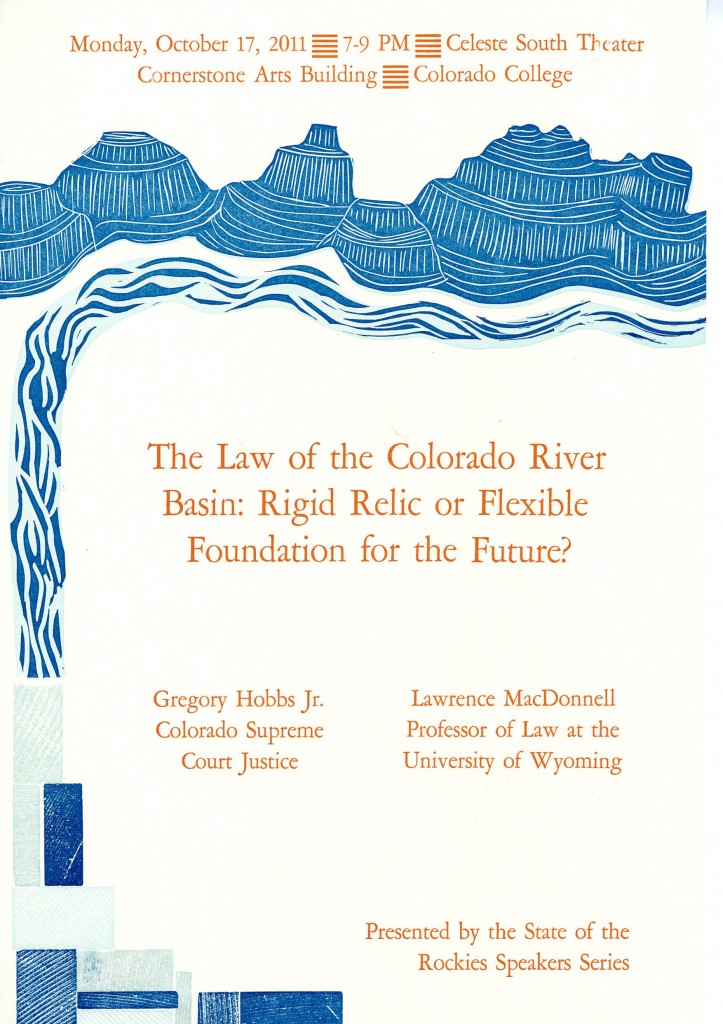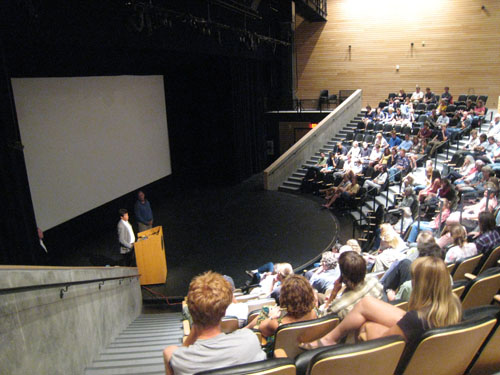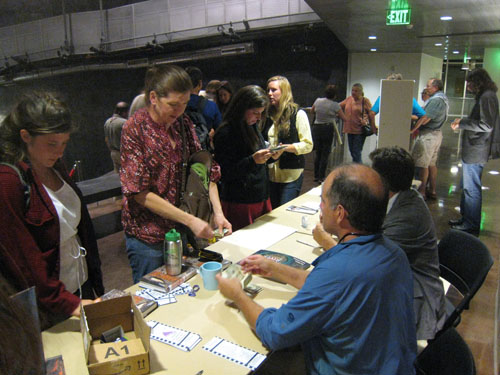The 2011-2012 Monthly Speaker and Conference series, sponsored by The Colorado College’s State of the Rockies Project, continues to draw hundreds of students, faculty and area residents. The series, titled “The Colorado River Basin: Use, Restoration and Sustainability as if the Next Generation Counts,” features experts talking each month through February about issues surrounding the Colorado River.
On Monday night in the Celeste South Theater, located in the college’s Cornerstone Arts Building, the project presented “Environmental Perspectives and Action.” Three experts participated:
- Bart Miller, the water program director of the Western Resource Advocates, a nonprofit law and policy organization that influences water use through lobbying, civil litigation and legislation;
- Jennifer Pitt, a manager of the Environmental Defense Fund who focuses on legal and policy issues involving the Colorado River; and
- Tom Chart, director of the Upper Colorado River Endangered Fish Recovery Program.
For millions of years, the Colorado River was an unbroken chain from the headwaters of Longs Peak in the Colorado Rockies to the Sea of Cortez delta in Mexico. But since 1998, overuse of the river’s water has left 90 miles of dry delta.
The Bureau of Reclamation maintains that Westerners are using every drop of the river, yet the demand for its water is expected to increase substantially over the next decades. The federal government says use of the river is expected to increase 8.5 percent by 2050.
Monday night, Miller, Pitt and Chart discussed problems and solutions involving the river.
Miller told about 350 people attending that oil companies have bought up water rights on the Colorado River in areas where they hope to mine for oil shale, which uses tremendous amounts of water and energy to squeeze oil out of rock. He also said the Flaming Gorge pipeline, if completed, will drain 250,000 acre feet from the Green River, which will greatly impact recreational activities on the river in Wyoming, and result in extremely expensive water for Coloradoans.
He suggested that through legislation, oil companies and the proposed pipeline can be limited in their river-water allocation. Miller also said that now is the time for parks along the river to legally nail down their future water rights. An example is Colorado’s Gunnison National Park, which three years ago won water rights that will keep substantial river water flowing through it.
Pitt began her talk by pointing out that 25 to 30 million Americans drink the river water, and that agricultural needs account for 80 percent of river-water allocation.
But, she said, “we are now living in the age of limits,” as water supply cannot keep up with demand.
She explained that, during flood years, four times that of a year’s Colorado River flow is held in reservoirs, and that’s the only reason demand is being met today. “We sip and gulp our way through storage,” Pitt said.
She suggested that the solutions to balancing the integrity of the river with its utilitarian use are conservation; “alternative transfers,” which involves water sharing of, say, agriculture with city use; water banking, which, among other things, protects water for those least able to go without; and in-stream flow protections, which would monitor streams that normally flow into the river to make sure they weren’t being bled dry, which negatively impacts wildlife.
“There is growing recognition that we live in the age of limits,” Pitt said. The positive aspect of this is that “we might be able to right some of the wrongs done to this river.”
The final speaker was Chart, who is leading a team to protect endangered fishes in the Upper Colorado River Basin.
Chart said that there are four endangered fish species in the Upper Colorado. And though it’s been difficult, some headway has been made to protect them, with the biggest success story being the razorback sucker.
Helpful to the return of endangered native fishes is flow management of the river water through a delicate part of the Upper Colorado. “We are able to (control the water) at a time that makes biological sense,” he said.
Among the factors for native fish depletion is climate change, Chart said, but he didn’t elaborate.
For detail, you’ll have to wait till next month. The December 5 State of the Rockies speaker event will focus on the impact of climate change to the Colorado River Basin. Scheduled to speak are Beth Conover, a partner at Econover, LLC, a Denver consulting firm involved in climate change and resource sustainability issues; and Stephen Saunders, founder of Rocky Mountain Climate Organization and former deputy assistant of the U.S. Department of the Interior, which oversees the National Park Service and the U.S. Fish and Wildlife Service.
There will also be another update on two young men who in October set out on their goal of paddling the entire length of the Colorado River, which is expected to take four months. A video of their launching their rafts high in the Wyoming Rockies on the Green River was shown at Monday’s event.
The Conference and Speaker series continues through February. For more on its speakers and events, go to http://www2.coloradocollege.edu/stateoftherockies/speakerseries.html.
Written by Mark Barna, State of the Rockies Project Writer
